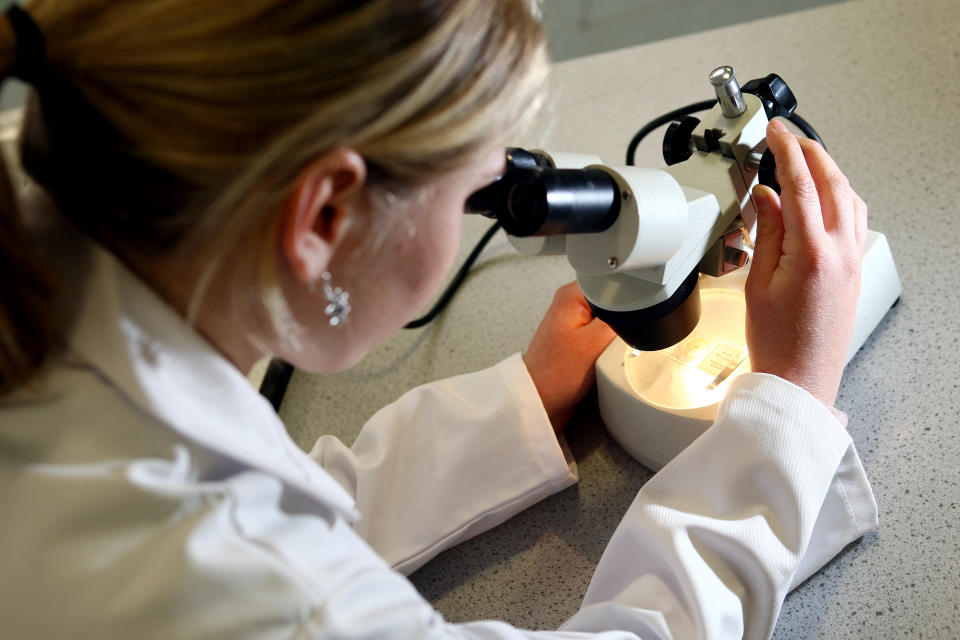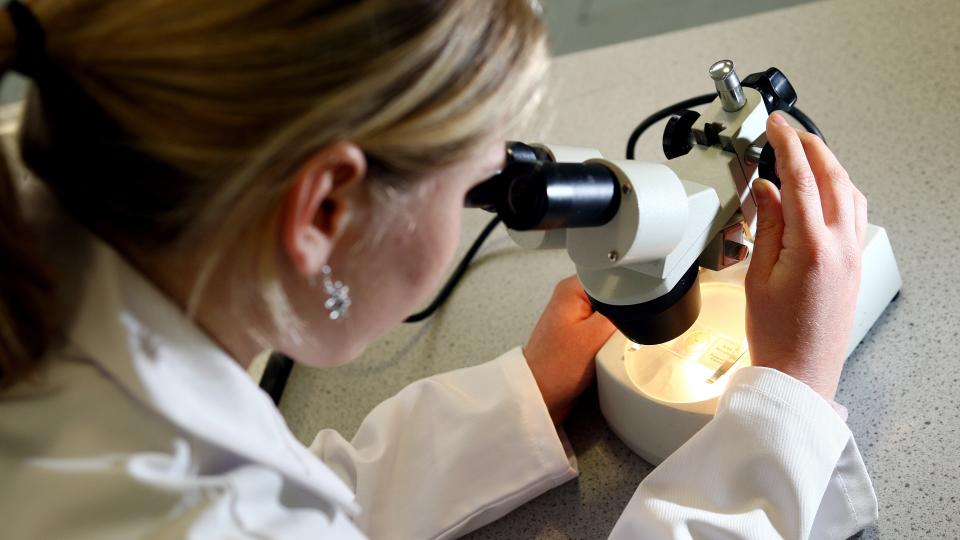British research brings personalised treatment for blood cancer a step closer
Personalised treatments for leukaemia have come a step closer after a British study on the role gene mutations play in blood cancers.
Scientists from the University of Birmingham analysed abnormal white blood cells taken from patients with acute myeloid leukaemia (AML), an aggressive form of the disease affecting about 2,600 people each year in the UK.
The team identified critical genetic “trigger points” that influenced the cells’ identity and behaviour.
The research focused on myeloid cells, key components of the immune system that fight off bacterial infections and parasites.
Lead scientist Professor Constanze Bonifer said: “In acute myeloid leukaemia, genes are targeted by mutations that encode either master regulators controlling cell identity or factors transmitting signals through the cell, therefore the normal process of turning genes on or off is defunct.
“Our research found that, when this happens, the cells step sideways from their normal developmental programme and speed out of control.
“Crucially, (cancer) cells from patients with the same types of mutations always take the same route when they head off in the wrong direction.
“Our analyses of each of the pathways that the cells took when developing into cancer identified key points in the cell that could be used in the future to target and develop new drugs to treat each type of AML in a different way.”
The findings are published in the latest issue of the journal Nature Genetics.
Co-author Professor Peter Cockerill said: “Doctors in Birmingham are already testing AML patients for the many different mutations that cause AML. However, now they know which genes are the most important for each type of AML.
“This means that personalised medicine will one day become a reality for blood cell cancers, which will see a different drug being given to treat each form of AML, creating personalised treatment for each cancer patient depending on the mutation that has caused their disease.”
Dr Alasdair Rankin, research director at the charity Bloodwise, which funded the study, said: “We need to be smarter about matching the right treatment to the right person if we want to boost survival rates for AML, especially if there are already drugs out there that can help.
“These landmark research findings will act as a blueprint for how to tackle this, and could even help with the delivery of personalised medicine in mainstream healthcare in the future.”

 Yahoo News
Yahoo News 

